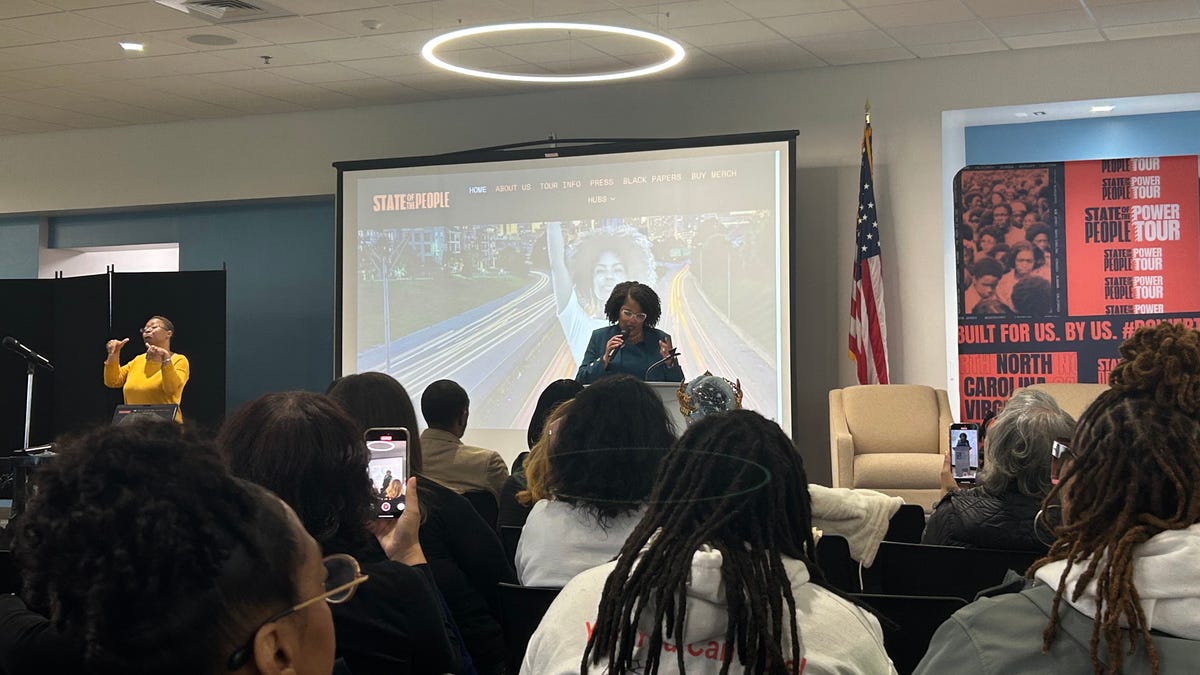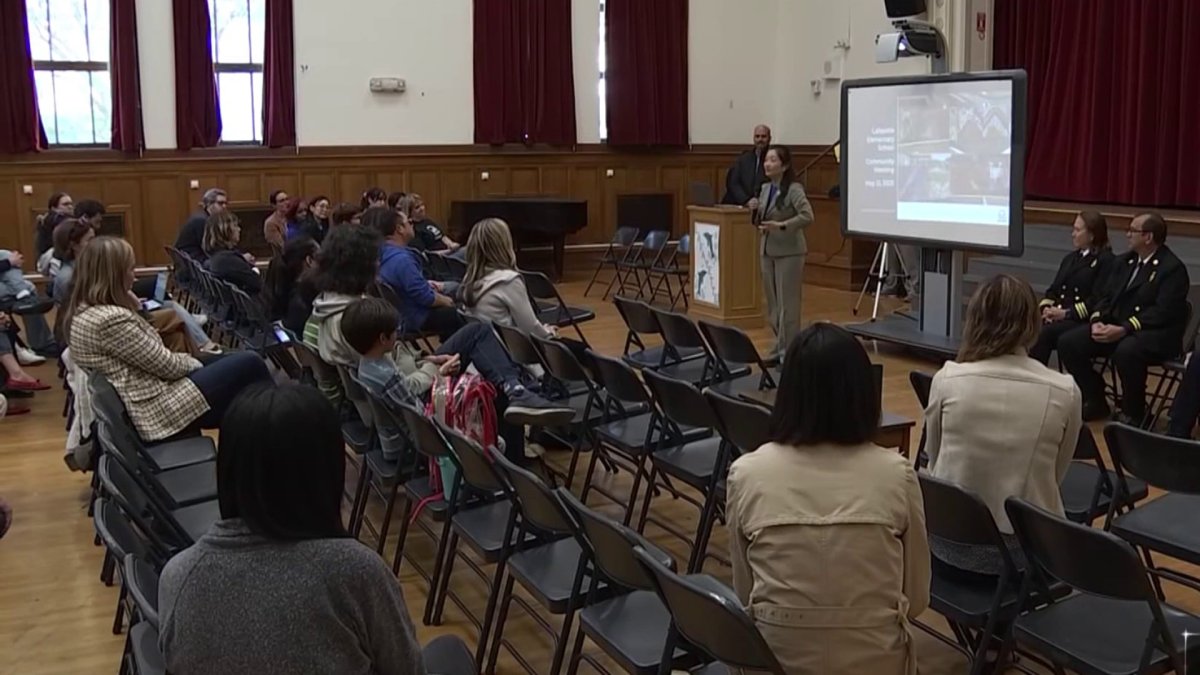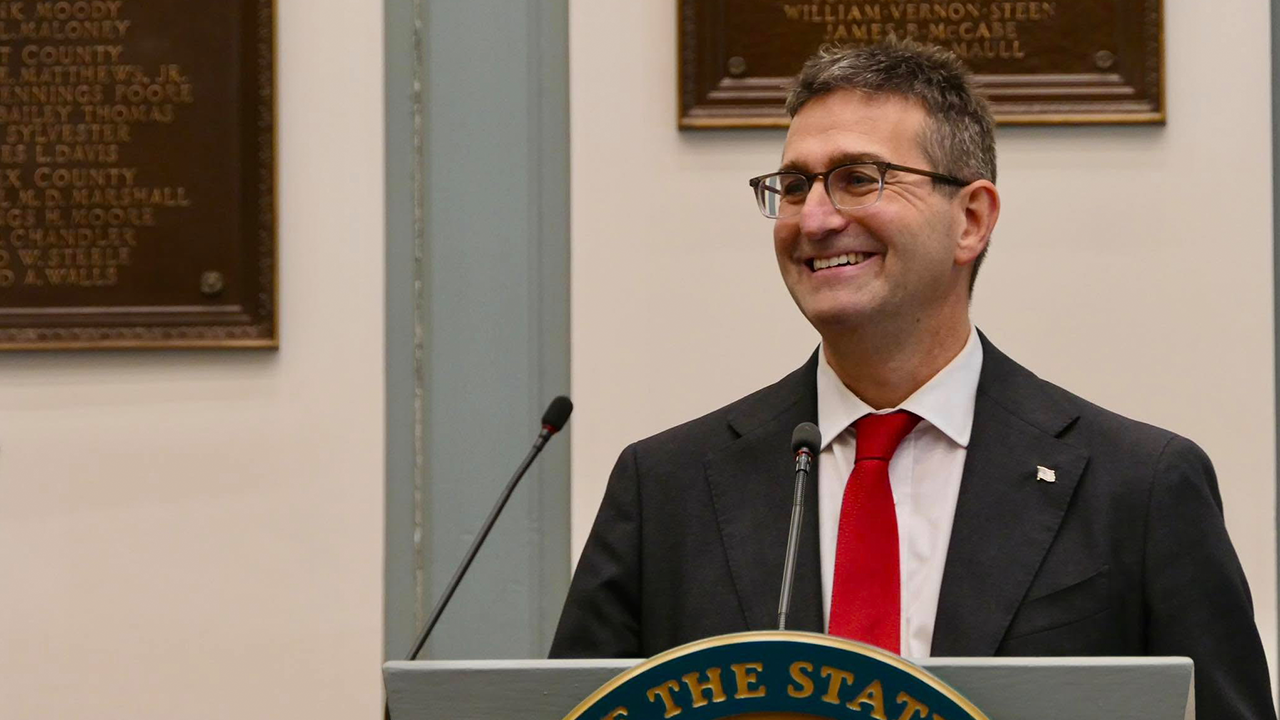Boston, MA
A new kind of Jewish space, where all are served – The Boston Globe

Lehrhaus bills itself as “a Jewish tavern and house of learning,” combining the concepts of restaurant and beit midrash, or study hall. Imagine a scene from “Yentl,” but including people of all genders, races, ages, and religions, with imaginative cocktails and food. (For Jewish singles, it could also be the best thing to happen since JDate.)
It opened this spring, getting into gear in earnest after a Passover break, at a time when antisemitism is increasingly virulent and visible. Incidents of hatred toward Jews reached a new high in the United States last year, according to a recent report from the Anti-Defamation League. Lehrhaus is a direct counter to this hatred, founded in the same spirit as Jewish American Heritage Month, currently underway: It is a celebration of Jewishness.
“This is a double-down,” says Schwartz. “This is a very muscular, full-throated double-down. This is where we are. We aren’t going anywhere. We are very proud of who we are and what we are.”
Schwartz cofounded Lehrhaus with Joshua Foer, who helped launch travel publication Atlas Obscura and Sefaria, an online library of Jewish texts, and is the author of books such as “Moonwalking With Einstein.” According to a 2020 Pew Research Center survey, 52 percent of US Jews report attending synagogue “seldom or never.” “We started talking about what we felt was lacking in our Jewish lives and lacking in the Boston community, and really in the wider American Jewish community,” Foer says. “You look around at the landscape and there are two things missing: First is a place that is open and welcoming where Jews can gather socially. Second is a place where learning is open and available and anybody can come in and partake.”
The word “anybody” is key. When people ask whether non-Jews are welcome, Schwartz says, “One of our lines is: You don’t have to be French to go to a French restaurant. Why would you have to be Jewish to go to a Jewish tavern?”
Lehrhaus is kosher and closed for Shabbat on Fridays and Saturdays, usually restaurants’ busiest hours. (It holds what might be the first Massachusetts liquor license that lists an opening time of one hour after sunset on Saturday night.) James Beard award-nominated chef Michael Leviton (Lumiere, Area Four) is an adviser on the project, with chef Noah Clickstein (Juliet, L’Espalier) leading the kitchen; cook Shabbos Kestenbaum is also a mashgiach, or kosher supervisor, and he ensures everything adheres to Jewish dietary law.

The menu is possibly the most Jewish document ever created, in a long history of Jewish documents. It lists what’s available to eat and drink, with Talmudic explications in the margins. For instance, for fish and chips: “It is believed that Sephardic Jews fleeing the Inquisition first brought fried fish to England. In the 18th century, the now iconic British national dish was referred to as ‘fish in the Jewish fashion.’ Today, matzoh meal remains a popular batter of choice in many British fish and chip shops.” Kosher kitchens can’t mix milk and meat, so there’s a Reuben sandwich, but smoked beets take the place of corned beef. “Chopped not-liver” is made with eggplants and nuts.
The menu reaches beyond the cuisine often featured at restaurants rooted in Jewish tradition. These tend to focus on the food of Ashkenazi Jews, from Eastern and Central Europe. But the Jewish diaspora is global, and Lehrhaus looks also toward the culinary traditions of Sephardic Jews (from Spain and Portugal), Mizrahi Jews (from North Africa and the Middle East), and beyond — from the American South to India. “We really want to show that Jewish food isn’t just pastrami on rye and matzoh ball soup,” says Clickstein, the chef. “We want people to know that there are Jews found throughout the world in different countries, and that foods we might associate with different groups also intersect with certain Jewish communities. We are finding these diasporic communities throughout the world and trying to ascertain what food they consume is Jewish food, not just food that Jews eat.”

This is a delicate topic, particularly when Israel and Palestine come into the conversation. To whom does hummus belong? Friendships have been ruined debating the question. It’s not one Lehrhaus tries to answer. Instead, it defines Jewish food as meeting three criteria. As Clickstein puts it, it has to be “of constraint, time, and tradition.” Constraint has to do with the rules, adhering to kosher law. Time is about the annual cycle of Judaism, with holidays marking the seasons. We are currently in the 49-day period between Passover and Shavuot, which this year commences the evening of May 25. “It’s a cycle that links up to agricultural cycles,” Clickstein says. “It’s fun to see how Judaism ties into food that way. It works so well with the seasonality of restaurants.” (A dish currently being served, spring barley soup, is inspired by Shavuot and ancient harvest offerings. See the menu for details.) And tradition is just what it sounds like: “It’s what we do, what we’ve always done.” Which doesn’t mean it’s familiar to all Jews. Many might know kugel, the noodle dish Lehrhaus marries with mac ‘n’ cheese, adapted from a recipe by Black Jewish writer and historian Michael Twitty, author of books such as “The Cooking Gene” and “Koshersoul.” But dabo, an Ethiopian bread served on Shabbat that was recently turned into croutons here, doesn’t share the same recognition as challah.

The cocktail list is fueled by the same philosophy. “We have drinks that are inspired by dafina, the Moroccan shabbat stew,” says Levy. (That would be the Dafina So Fine, an Old Fashioned riff made with raisin rum, sweet potato, and the Moroccan spice blend ras el hanout.) “We have drinks celebrating the way Jews have migrated and formed communities in other spaces, like the Colonia Roma, which takes Syrian and Mexican flavors and puts them together.” (It’s named for a Syrian Jewish neighborhood in Mexico City.) She enjoys explaining the stories behind the drinks to customers. Bartenders love to geek out about ingredients, she says. “Here we get to geek out about culture and history, and it’s really a fun and engaging way to interact with our guests.”
But Jewish learning is what really differentiates this Somerville tavern — named after a Frankfurt house of study founded by Jewish thinker Franz Rosenzweig after the influenza pandemic of 1918. It offers a robust series of classes, from one on an obscure but fascinating figure known as the Kotzker Rebbe (led by Kestenbaum, who is also a master’s student at Harvard Divinity School, focusing on Chasidic theology) to Sunday’s scheduled conversation with comedian Alex Edelman, also in town to perform at the Emerson Colonial Theatre en route to Broadway. And it offers a library, of some 3,000 volumes.

The books are what one notices first upon entering, shelves and shelves of them. There are handsome leather-bound sets in Hebrew, and popular works: novels by Philip Roth, guides to Jewish social justice, Bari Weiss’s “How to Fight Anti-Semitism,” “Jewish Jocks: An Unorthodox Hall of Fame,” by Franklin Foer (Josh’s brother) and Marc Tracy. There are cookbooks, books of Jewish jokes, volumes of poetry.
The shelves are labeled: “Jewish Reality: History, memoirs, Israel, biographies, and books about people trying to kill us”; “Jewish Ideas: Philosophy, theology, essays, and criticism. Occasional heresy.” In the “Jewish Imagination” section, Chaim Potok’s “The Gift of Asher Lev” sits beside “Nice Jewish Girls: A Lesbian Anthology.” There is no erasure of one view or the other. There is no specific ideological stance. There is the presentation of a kaleidoscope of Jewish views, and with that the opportunity to talk them through.
“There are two really central Jewish communal institutions going back to antiquity. The synagogue is the space for prayer, and the beit midrash is the space for learning, engaging with ideas, text, argument, and debate,” Foer says. That’s what they want Lehrhaus to be: “the place where your identity can be grounded in learning, debate, and argument. We have a feeling that not only is that something that appeals quite broadly, but also that a little bit of the world needs to get better at right now — engaging with difference and ideas and argument and debate without being disrespectful.”

On a recent evening, that spirit is very much in evidence. At a long table, a woman pores over Hebrew texts, taking notes and talking with another guest. “No, you’re wrong!” she shouts gleefully, and he laughs. At the bar, two customers are deep in philosophical talk about liminality. It’s crowded and convivial here, like a Passover Seder crossed with a dinner party. In the lounge area, customers read, chat, and sip cocktails, sinking into the dark blue velvety banquettes and caramel leather armchairs. “Bob Dylan’s Greatest Hits” spins on a turntable. A tiny TV plays Jewish silent films from the ‘20s. Next to a portrait of Austrian-Jewish feminist and social worker Bertha Pappenheim is the kind of Instagrammable neon sign one sees everywhere these days. It reads: “Teach your tongue to say ‘I don’t know,’” a quote from Maimonides. Big windows offer a view out onto the street — and, for passersby, a look inside Lehrhaus.
“This is a moment in time where many in the Jewish community want to retract a little bit out of a fear of antisemitism,” Schwartz says. “We’re saying no. Judaism is an integral part of the story of the US and Boston and Somerville. We want people to come in and encounter the best Judaism has to offer: welcomeness, stories, warmth, and love.”

Devra First can be reached at devra.first@globe.com. Follow her on Twitter @devrafirst.

Boston, MA
Red Sox Notes: Why Boston Cut Garrett Crochet's Start Short

BOSTON — The Red Sox weren’t in a great place as a pitching staff Wednesday.
The bullpen tossed 11 scoreless innings over the previous two games, particularly with 6 1/3 innings after the premature ejection of starter Walker Buehler in Tuesday’s win.
That marked a great day for Garrett Crochet to get the ball in the finale against the New York Mets. Or so it seemed.
Crochet leads the league in innings pitched in just his second season as a full-time starter. He tossed 146 innings a year ago with the Chicago White Sox. While the Red Sox have let him eat in early outings, manager Alex Cora is adamant about protecting his ace.
“We’ve got to be careful, too,” Cora said pregame. “He’s very important in what we’re trying to accomplish. It’s a dangerous game. The conditions aren’t great. Where we’re at bullpen-wise is where we’re at. We won the series yesterday. We want more, of course, but at the same time knowing it’s 162. To do cool things in August, September and hopefully October, we’ve got to be very careful.”
Story continues below advertisement
Indeed, they were careful. Crochet allowed just one earned run in 5 1/3 innings. He struck out Juan Soto on his 85th pitch for the first out of the sixth inning. Following through on a decision made last week in preparations for the start, the Red Sox manager came to the mound to get his starter.
“He did a good job,” Cora said postgame. “Today was one of those days we circled that we were going to be short.”
“I wasn’t made aware of it before the game, thankfully,” Crochet said. “That’s the last thing on my mind when I’m going out there to lay it all on the line. I have a lot of love, respect and trust in the front office and coaching staff here. If that’s their call, I’m gonna respect that.”
The Red Sox dropped the game 5-1 to the Mets. Crochet certainly didn’t hold back frustrations on the mound when Cora came to take the ball, but the ace reluctantly understands the vision of the coaching staff.
Story continues below advertisement
“I was frustrated,” Crochet said with a laugh. “I just wanted the chance to pick up my teammates, the bullpen. They’ve obviously worked really hard this series. I wanted to try and keep them out of it as much as possible. … I apologized for yelling a curse word when he came out there. I wasn’t trying to show him up. I was just really in the moment. I knew where my pitch count was and how my body was feeling. I was really excited to attack the next hitter. It was in no way my intention to show him up.”
“Yeah, it’s tough,” Crochet continued. “Looking my teammates in the eye after a game, I’d like to be able to do that after laying it all on the line. It is what it is. Not my call. I throw until the ball is taken out of my hand. I respect their decision. That’s really all there is to it.”
Despite a dire situation for the bullpen, Cora would not break on his commitment to ensuring that Crochet is fresh and ready to rock when games really matter in a postseason push, which only happens if the team breaks .500 tendencies, for the Red Sox later this season.
“It’s not tough, it’s for the benefit of the player,” Cora said. “To make his starts and for us to go to where we feel we can go, we need him. … We’re going to find some days where we’re going to take advantage of them, regardless of the situation. You’ve got to put the player first. He was very upset in the beginning, then he was OK with it. Obviously, we were short (in the bullpen), but that doesn’t dictate what we’re going to do with our ace.”
Story continues below advertisement
Here are more notes from Wednesday’s Mets-Red Sox game:
— Mets starter Tylor Megill tied a career-high with 10 strikeouts against Boston in just 4 2/3 innings.
— Crochet struck out Soto three times on a total of 10 pitches. Soto did not take the bat off his shoulder for the first seven pitches against the Red Sox starter.
— The Red Sox lineup struck out a season-high 16 times in the loss. Alex Bregman went 0-for-4 and struck out four times in a game for the first time in his career.
Story continues below advertisement
— Boston dropped the finale for a third consecutive series.
— The Red Sox continue the homestand Thursday night as they welcome the Baltimore Orioles to Fenway for a four-game series. First pitch (weather permitting) is set for 6:45 p.m. ET. You can catch the game, plus an hour of pregame coverage, on NESN.
Boston, MA
Out of Boston City Hall love spat come serious questions for Wu – The Boston Globe

But questions arising from this messy incident are not so easily swept away — although Wu is trying to do just that.
Huang was the neighborhood business manager for the Office of Economic Opportunity and Inclusion, at a salary of $70,469. Khudaynazar was chief of staff for the Office of Police Accountability and Transparency, at a salary of $83,769.
The two were arrested and charged last week after police responded to a call from an apartment in Chinatown, where Khudaynazar told police she bit Huang in self-defense because he wouldn’t let go of her wrists, according to a Globe account of the police report. When police began to arrest Huang, Khudaynazar said, “I don’t want that, I was lying, I was lying.…I bit him,” according to the report.
She then allegedly tried to close the door, while telling police, “we both work for the city of Boston, we both work for the mayor’s office.” At one point, Khudaynazar allegedly began to hit an officer on the chest while shouting obscenities. Huang also allegedly told police, “We both work for the city, this is unnecessary.”
Khudaynazar was charged with assault and battery on a police officer and assault and battery on a household member. Huang was charged with assault and battery on a household member. Both pleaded not guilty at their arraignments.
Citing police reports, several media outlets, including the Boston Herald, also reported that Khudaynazar allegedly told police that Huang was cheating on her and she went on a date with his boss. Huang also allegedly told responding officers that Khudaynazar and his boss “booked a hotel room and she came here to rub it in my face.”
The boss referred to has not been named in any reports. But City Councilor Ed Flynn has called for the resignation of Segun Idowu, the city’s chief of Economic Opportunity and Inclusion, who oversees the office for which Huang works. In an interview, Flynn said he is also calling for an independent investigation into the incident in order “to restore public trust.”
Josh Kraft, who is challenging Wu in the mayor’s race, has called for Wu to release the internal report and to disclose whether the fired workers are receiving severance payments. Kraft has also called upon Wu to disclose Idowu’s “role” in the incident.
Put aside the obvious political motivations of two Wu critics, including one who is seeking her job, and both Flynn and Kraft raise valid issues.
Asked if Idowu is involved in any way, a spokesperson for Wu told me via text that she did not have “anything to share” on that. While Khudaynazar did not report directly to Idowu, there could be potential power dynamics in play given that he is a member of Wu’s Cabinet, and it’s fair to ask Wu to address that. Meanwhile, a group of Black leaders has signed a letter that supports Idowu, and describes calls for his resignation as “unfounded and politically motivated.”
Another tangential question: What work is the Office of Police Accountability and Transparency, where Khudaynazar was employed, actually producing?
Established in 2020 in the wake of the murder of George Floyd, the office was set up as a civilian body to investigate complaints of Boston Police Department misconduct and holds subpoena power.
At the time, Wu was one of 12 city councilors who voted for it, and then-mayor Marty Walsh signed the ordinance that created it. Since then, as the Globe recently reported, OPAT has experienced turnover and vacancies and failed to hold public meetings or produce public reports.
Last October, Boston 25 News reported that the OPAT website was “full of broken links, making information inaccessible to the public.” When I checked, the last meeting and report listed on the current website dated back to January 2024. But a Wu spokesperson said the OPAT team has met, has investigated 143 complaints, and plans to release a report in July.
Wu appointed Evandro Carvalho, a former prosecutor and former state representative, as executive director a year ago. As he recently told the Globe, “We’ve had some challenges in terms of fulfilling all the functions, but we’ve been working hard to build capacity to make sure these gaps are closed.” In that interview, Carvalho also said that recent hires included a chief of staff.
It’s unclear what specific qualifications Khudaynazar had for a job that should require a certain level of experience and maturity.
Political work attracts young people, and young people sometimes do dumb things that should not define their entire lives. But when you work for the public, you are accountable to the public. That’s a tough lesson for Khudaynazar and Huang.
There’s also a lesson for Wu. Who gets hired and fired sends a message about workplace priorities, culture, and oversight. Especially in an election year, that message matters.
Joan Vennochi is a Globe columnist. She can be reached at joan.vennochi@globe.com. Follow her @joan_vennochi.
Boston, MA
Alex Cora responds to critics after missing 1 game for daughter’s college graduation

Alex Cora missed Monday’s series opener with the New York Mets, see his only daughter, Camila, graduate from Boston College, and he doesn’t care if people disagree with his decision.
The Red Sox manager was in a good mood before Tuesday evening’s game at Fenway, and seemed genuinely unfazed by the criticism. He described Monday as “tremendous” and a “great day.”
“Excellent. Just the day that we will always remember,” Cora said of the big family event.
While most Red Sox fans on social media seemed to support Cora’s decision, there were a few loud critics, including 98.5 The Sports Hub’s Mike Felger, who said Monday it was “preposterous” for the manager to miss the 6:45 p.m. game when the graduation took place in the morning. Unlike players, whom Felger reasoned are part of a players’ union, he said Cora had no excuse to take the night off.
“They were, I believe, done by noon, which means you can have a nice big party in the middle of the day,” the radio personality said. “Just cab down the street and manage the game.”
“It’s just the tone you set, the example you set for the team,” Felger continued. “It’s just the leadership and optics of the whole thing. It’s a very easy chance for him to say, ‘Nothing’s more important than tonight’s game.’”
Without directing his response to Felger or anyone else, Cora said that he took the entire day off at the behest of his daughter. He also pointed out that he would’ve needed to miss more time if the graduation was out of state, saying, “There’s coaches that, they take three days for that.”
“She wanted me to be with her, and it was her day so this is secondary,” Cora said. “You know, we’re in this world for a purpose, right, and for me, it’s to raise her, try to do the best we can. Obviously it wasn’t perfect, but right now, it’s perfect.”
Asked if he was bothered by the criticism, Cora laughed.
“People have their own opinions,” the Sox skipper then said. “I bet those people, they have families too, and at one point they had to make decisions, too. And I bet they made decisions for the best of the family. I made the best decision for my daughter, and for those who don’t understand, I’m not gonna try to convince them. It is what it is. I made the best decision for my girl.”
Originally Published:
-

 Education1 week ago
Education1 week agoA Professor’s Final Gift to Her Students: Her Life Savings
-

 Politics1 week ago
Politics1 week agoPresident Trump takes on 'Big Pharma' by signing executive order to lower drug prices
-

 Education1 week ago
Education1 week agoHarvard Letter Points to ‘Common Ground’ With Trump Administration
-

 Culture1 week ago
Culture1 week agoBook Review: ‘Original Sin,’ by Jake Tapper and Alex Thompson
-

 Culture1 week ago
Culture1 week agoTest Yourself on Memorable Lines From Popular Novels
-

 News1 week ago
News1 week agoAs Harvard Battles Trump, Its President Will Take a 25% Pay Cut
-

 News1 week ago
News1 week agoWhy Trump Suddenly Declared Victory Over the Houthi Militia
-

 News1 week ago
News1 week agoAustin Welcomed Elon Musk. Now It’s Weird (in a New Way).















